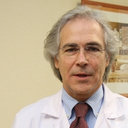Triflusal and aspirin have different effects on inflammatory biomarkers measured in patients with acute ischemic stroke.
Nøgleord
Abstrakt
OBJECTIVE
Triflusal is a 4-fluoromethyl derivative of salicylic acid used for secondary prevention of ischemic stroke. Recent experimental data (permanent middle cerebral artery occlusion in rats) have shown a possible role of triflusal in neuroprotection through inhibition of inflammatory pathways.
METHODS
To explore whether triflusal may modulate those pathways in human stroke, evolution of several inflammation markers (pro-inflammatory, adhesion molecules, chemokines, metalloproteinases, apoptosis and angiogenesis-related biomarkers) and neurological outcome were evaluated at baseline, and at days 1, 3, 7 and 90 in a pilot study in which 30 patients with acute ischemic stroke were randomly allocated to receive triflusal or aspirin.
RESULTS
An increase in IL-6 level was found in the aspirin group when compared to the triflusal group at the third and seventh day (p < 0.05). FGF-basic level was significantly increased at days 1 and 90 in the triflusal group (p = 0.040). The triflusal group also had higher levels of MIP-1alpha and MIP-1beta (p < 0.05) at day 1. Also among triflusal-treated patients, MCP-1 and TARC levels were increased as compared with the aspirin group at day 90 (p < 0.05). Interestingly, some of those markers modified by triflusal (MCP-1 and IL-6) were associated with neurological outcome: higher MCP-1 measured at day 3 among patients who improve at day 7 [462.3 (419.2-735.2) vs. 285 (242.1-428.2), p < 0.05], and lower levels of IL-6 at day 3 among patients who improve at day 90 [24.8 (5.6-77.3) vs. 5.4 (2.0-13.8), p < 0.05].
CONCLUSIONS
Triflusal modulates additional mechanisms to those of aspirin [pro-inflammatory (IL-6) and chemokine (MIP-1 and MCP-1) pathways] that could participate in the ischemic damage process following human acute stroke.


